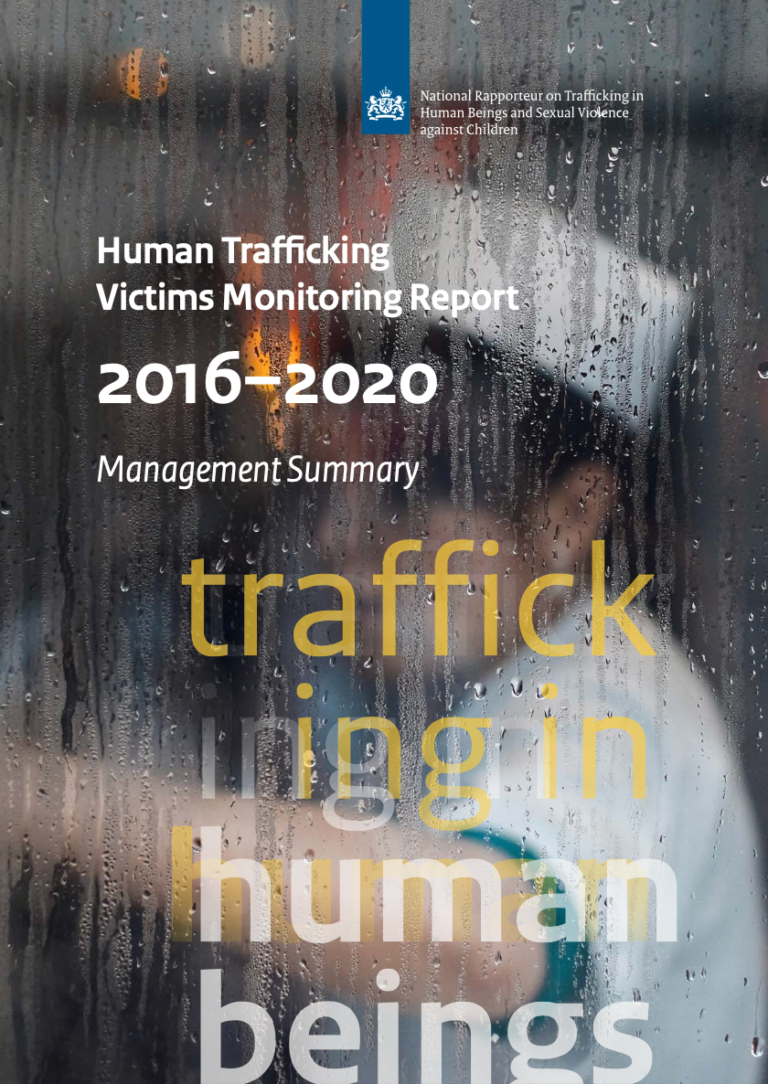It is clearer than ever that human trafficking is not an isolated problem. This is evident from the reports published by the National Rapporteur in recent years. The Human Trafficking Victims Monitoring Report 2016–2020 highlights this once again.
Accumulation of problems calls for more appropriate support
This edition of the Victims Monitoring Report also deals with the overlap between sexual violence and sexual exploitation, as well as the interconnectedness between human trafficking and other forms of subversive crime. In addition, it has become increasingly clear in recent years how victimisation and offending in human trafficking can overlap. This accumulation of problems and the knowledge that experiencing human trafficking can have long-term disruptive consequences for victims calls for the earliest possible detection, triage and appropriate protection. The government has the responsibility and crucial task to ensure these mechanisms and provisions are in place. This edition of the Victims Monitoring Report shows that the Netherlands still falls short in this area.
This is reflected by the fact that almost half of the presumed victims of human trafficking again fall victim to an offence within five years. These are often serious offences, such as being re-trafficked, but also abuse, threats and sexual violence. Moreover, the support available to victims was found to depend largely on circumstances such as the municipality where victims reside or their residence status whereas the support offered should depend precisely on victims’ needs. A fundamental change in the approach to tackling human trafficking is required.

